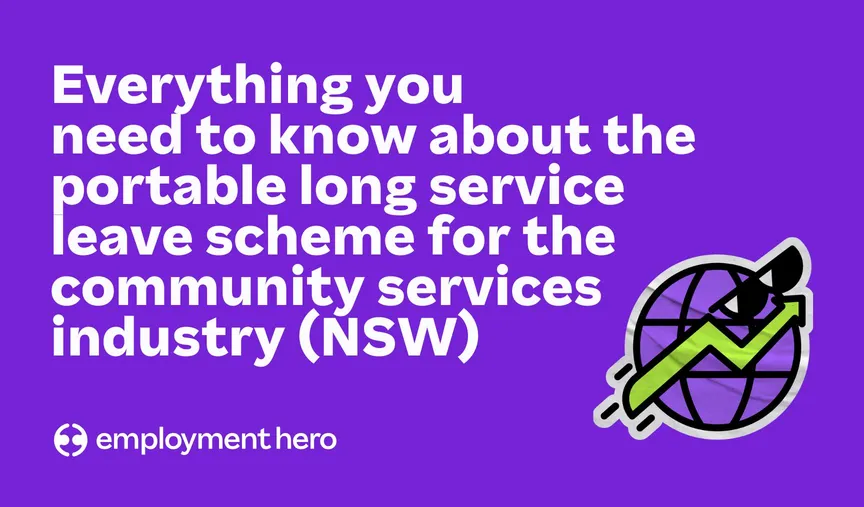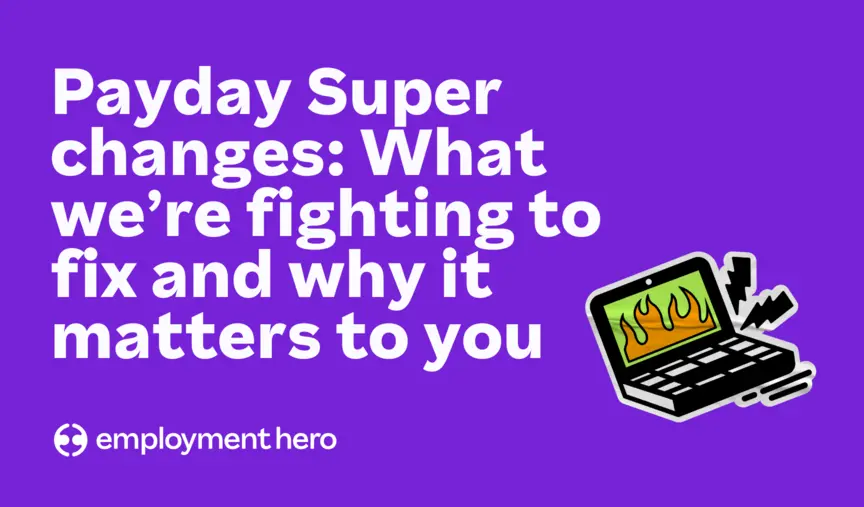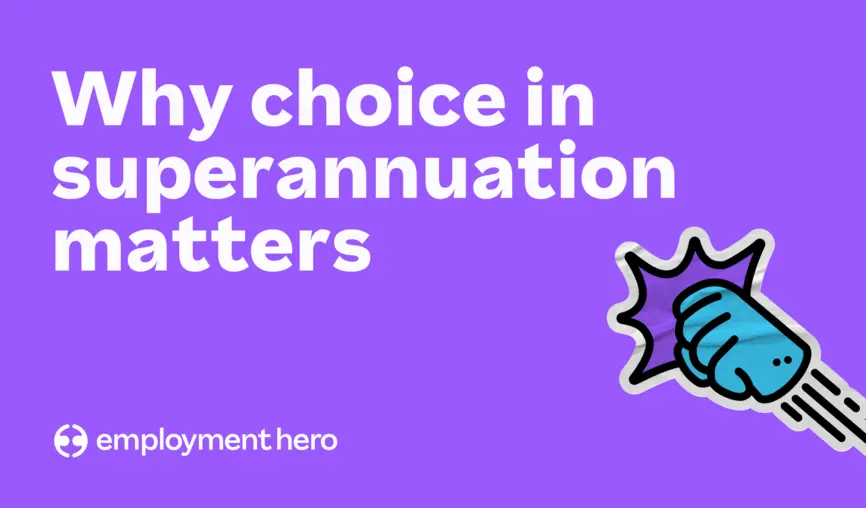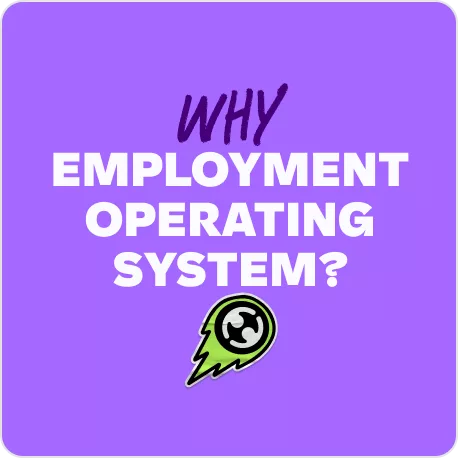7 best practices when scheduling interviews for candidates
Don’t let interview scheduling be a headache. Check out these best practices to streamline the process and make a great impression on potential hires.

Contents
Following trends like quiet quitting, the Great Resignation and the onset of GenAI, getting — and keeping — the right employees for your business is more important than ever. It’s all about the candidate experience, where job applicants are more likely to follow through with the hiring process if they feel heard, respected and prioritised throughout.
When more than 4 in 10 applicants decline job offers due to a negative interview experience, the stakes are high. Impressions matter in a high touch environment like recruitment, and coordinating interview schedules is one of those friction-prone situations where it’s easy to misstep.
This guide to best practices in candidate interview scheduling will cover the entire outreach process, helping you navigate the many moving parts of coordinating interviews and empower you to ace candidate engagement with ease.
What are the main stages in the interview process?
Losing interview candidates happens most frequently due to gaps in scheduling or miscommunication. The chances of having a candidate slip through the cracks increases with the number of interview rounds — so getting each interview stage in order is the first step to beating the odds and saving on recruitment costs.
To ensure your team is well-prepared, use our Interview checklist for hiring managers, which offers handy, downloadable checklists for each stage of the hiring process.
Scheduling interviews can be divided into three main stages: pre-interview, interview, and post-interview.
Pre-interview preparation
Proactive action lays the foundation for successful interview coordination — the pre-interview preparation phase is where you can streamline the hiring process and get the ball rolling on selecting candidates.
Create an interview process roadmap
Planning out your interview process is a great way to make sure you’ve got all your bases covered. For a comprehensive guide on structuring your interviews, refer to the complete interview guide for hiring managers, which breaks down the essentials of the interview process.
Before you get to interviewing, review the job description, decide what interview format you’re going with, formulate interview questions, set up evaluation metrics and iron out logistics. This is also where you’ll collate candidate data and pinpoint key performance indicators so you can analyse your hiring process later.
Since hiring can stretch on for up to 44 days or more, taking the time to plan ahead and capture your recruitment process from start to finish is the number one way to prevent redundant steps and bring you closer to securing a candidate for the position. You’ll also have all the details you need on hand, which means better communication, fewer no shows and effective expectations management on all sides.
Coordinate with interviewers
Now that you’ve identified the parts, it’s time to get them moving.
Once you’ve identified the internal hiring managers and interviewers, check in with them on their availability. If someone is going on vacation, is there another person who can step in on their behalf? If not, getting information on who’s off on leave and when that is will help you work around their schedule before you get candidates involved.
Before the interviews begin, make sure that all the hiring team members involved have been briefed on the process, from the questions, to the criteria they’re looking for, all the way to who they’ll be speaking with. Standardising the interview process doesn’t just benefit the interview candidates — having some structure also makes evaluation easier for the interviewers, providing them with what they need to better make informed decisions.

Batch interviews or go asynchronous
Manually scheduling one-on-one interviews is easy; you just have to access the interviewer’s calendar and schedule an interview whenever they’re available. With multiple interviewers however, it might be better to designate specific days for upcoming interviews where you know everyone will be free. This lets you book time slots for candidates without worrying about interviewer availability.
If you’re doing in person interviews, group interviews are a great way to test people skills and interview multiple candidates at the same time. Meanwhile, if you’re using a virtual interview process, you might prefer video interviews, where candidates answer questions in video format and submit them to be evaluated asynchronously by the recruiting team.
Delivering a great candidate experience
We’ve said it before: positive candidate experiences beget a positive employer brand, engaged employees and the best talent knocking on your door.
Communicate with candidates
The interview phase is when candidates and the organisation get to know each other, so how you communicate will help you form a great first impression. Prompt, clear and detailed answers to candidate questions will leave no doubt in their minds that you’re who they want to work for. An interview schedule template will help you stay on top of your time slots and calendar events, while an email template will make sure that you communicate all the relevant details involved.
Nobody likes being left hanging — even if it’s just an application acknowledgement or a rejection email, close the loop with a sentence or two thanking applicants for taking the time to apply. Being responsive and timely in keeping candidates informed can make all the difference in creating a positive candidate experience, which can change the minds of almost 9 in 10 candidates if they previously doubted your organisation.
Respect candidates — especially their time
Last minute changes suck, but they’re sometimes necessary. If you foresee frequent rescheduling, let candidates know ahead of time so they’re prepared for when it happens. Being mindful of the valuable time taken to apply for a position is your best bet to making top candidates feel appreciated.
Putting transparency, clarity and flexibility first in your communications and expectations management will help soften the blow when you inevitably need some grace from a candidate. What’s important is that candidates feel considered, understood and respected throughout the recruitment process.
Feedback and continuous improvement
The best way to figure out an interview scheduling strategy that works for you is to first implement, then review and iterate it.
Get feedback from candidates and interviewers
As you go through the interview process, keep communication lines open for both candidates and the hiring team. You’ll want to know if something isn’t working, and they might have insight about what works better.
Need guidance on giving effective feedback to candidates? See how to give constructive interview feedback to candidates, which emphasises the importance of constructive feedback in creating a better candidate experience and building employer-employee relationships.
After an interview is completed, survey candidates to find out whether they had a positive experience and if they have any feedback or suggestions for improvement. For interviewers, check in with them on things like whether they had enough time to get to know the candidates, whether the interview process was smooth and whether the questions and structure provided were effective.

Strategise with key performance indicators (KPIs) and metrics
Another way to get feedback on how your interview scheduling process is doing is by using analytics. While not all metrics are directly related to interview scheduling, many of these numbers correlate with your organisation’s candidate engagement, candidate experience and employer brand.
Expand your talent pool creatively with these 13 creative talent sourcing strategies, which offer innovative approaches to finding and attracting top talent.
Here are some key metrics to start you off:
- Time to hire
- Cost per hire
- Quality of hire
- Conversion time
- Active/passive ratio
- Time to fill a position
- Applicant conversion rate
- Candidate response rate
- Top sources of hire
- Top reasons for declining an offer
- Number of applicants for a position
- Number of applicants in alternative placements
- Number of applicants redeployed through interview process
- Feedback and survey responses
- Online engagement metrics like likes, comments, shares and mentions
- Online interaction metrics like click through rates and email open rates
How far in advance should interviews be scheduled?
Too soon, and your candidates will be scrambling to make the interview; too late, and your candidates will think you’re not interested in hiring them.
The sweet spot is about a week in advance — not only does this give everyone time to prepare for the next round, it also allows for some flexibility in case something comes up on either side. Having enough time between interview rounds means that you can set up alternate arrangements if the previously agreed upon time doesn’t work out.
What are the best tools for scheduling interviews?
Workspace tools like Google Calendar are already in common use. Alternatively, you could also try a self-service scheduling application such as Calendly, where you set your availability and send the link to a candidate, so they can self schedule and pick the appointment slots that work for them. These tools also accommodate time zone differences for when you’re hiring globally.
While you’re at it, an applicant tracking system (ATS) can help you keep track of candidates, conduct assessments and collate the data for reference throughout the recruitment process. Even handier are the automations and integrations that come with, as you can set up processes that send communications and shuffle candidates through to the next step once a specific action is done on their part.
How to schedule interviews easily with Employment Hero
Employment Hero’s recruitment software features a handy applicant tracking system (ATS) that integrates with multiple job boards and guides candidates and hiring stakeholders through the recruitment process. Easily collaborate and schedule interviews using Outlook and Gmail integrations and make use of ready-made templates and customisations for hiring processes, screening questions and selection criteria.
Gone are the days of manually moving candidate data between distributed spreadsheets, tedious reference checks and emailing each candidate interview details one by one— instead, everyone involved in the talent acquisition process can access the information they need through one platform that syncs seamlessly across all devices.

Streamline your hiring process in a few clicks
With so many moving parts, coordinating interviews can be a real hassle, but it doesn’t have to be a pain all of the time. Let Employment Hero make life easier for you and your candidates with our all-in-one HR and payroll platform.
Master your candidate experience and schedule interviews quickly with our applicant tracking system (ATS) and AI-enhanced features — you can even connect with jobseekers and nurture your organisation’s talent pool with SmartMatch, our automated candidate screening system.
SmartMatch takes on the hiring process by analysing a candidate’s skills, experience and certifications, delivering a list of qualified talent that’s ready to go and matches the roles or job openings in your organisation. Filling a position with the best candidates available has never been easier.
Book a demo with one of our business specialists to find out more.
Related Resources
-
 Read more: NSW Government introduces Portable Long Service Scheme for the Community Services Industry
Read more: NSW Government introduces Portable Long Service Scheme for the Community Services IndustryNSW Government introduces Portable Long Service Scheme for the Community Services Industry
The NSW Government has introduced portable long service leave for the community services industry. Learn what it is and what…
-
 Read more: Payday Super changes: What we’re fighting to fix and why it matters to you
Read more: Payday Super changes: What we’re fighting to fix and why it matters to youPayday Super changes: What we’re fighting to fix and why it matters to you
Big changes are coming to how superannuation is paid in Australia. Here’s what we’re asking Treasury to seriously consider updating…
-
 Read more: Why choice in superannuation matters
Read more: Why choice in superannuation mattersWhy choice in superannuation matters
What could be coming when Payday Super hits and what Employment Hero is doing about it.










